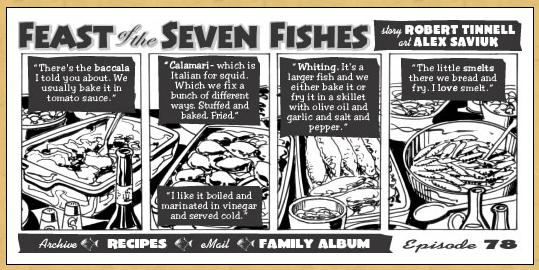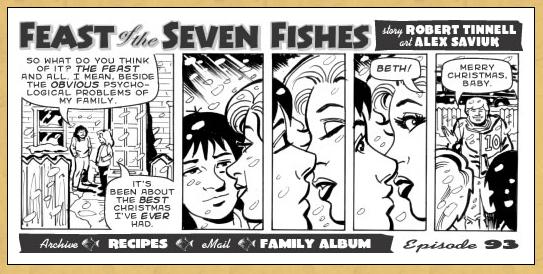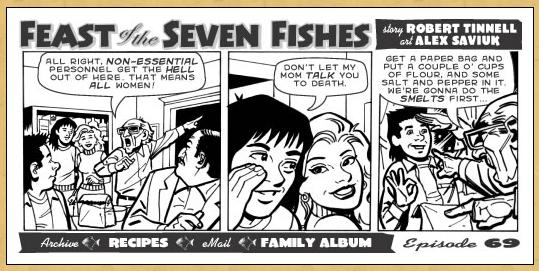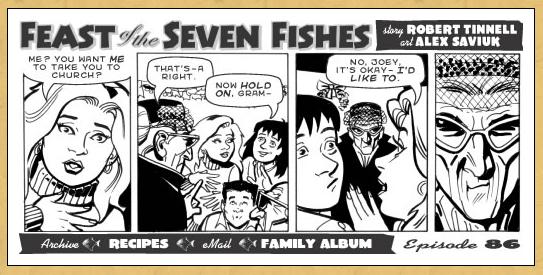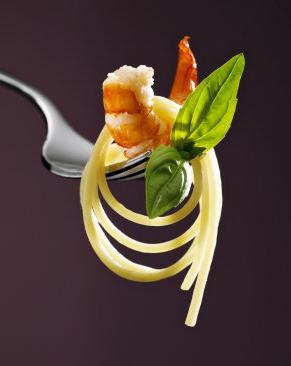
Candida Martinelli's Italophile Site

Main
Page This family-friendly site celebrates Italian culture for the enjoyment of children and
adults. Site-Overview
Below: Robert Tinnell's Feast of the Seven Fishes
- Graphic Novel For many families in Italy, Christmas Eve, La Vigilia di Natale, is
when the Christmas festivities take place. Families get together,
share a meatless meal (some require a specific number of fish
dishes), open gifts, and attend midnight mass. After the mass, meat dishes can be served. Sweets and
alcohol generally accompany the whole thing, along with laughter,
tantrums, cooking, cleaning up, TV and DVD movies and music. It's a pretty common Italian tradition that the older children spend Christmas
Eve with their families, and New Year's Eve with their friends. So
everyone is together for Christmas Eve.
There are family traditions, town traditions, regional traditions
and some traditions that could be called 'Italian', such as watching
the Pope conduct Christmas service (at midnight or the
next day), or watching the
specials televised by the major TV channels. Many
hyphenated Italians, living in far off countries, follow the
traditions carried over by their ancestors who emigrated from Italy
decades earlier.
Some hyphenated Italians are rediscovering Italian Christmas
traditions such as the presepio and a Fish Feast.
And some non-Italians are adopting the Fish Feast for health
and taste reasons, sometimes moving it to Christmas Day. Writer, film-maker, Robert Tinnell, grew up in the small town of Rivesville, West
Virginia, in an extended, Italian-American family. His comic
strip/graphic novel and possible film (see
below) are based on his experiences. Here are some
excerpts from his book (with
some paraphrasing).
Carrying on Italian Traditions "The story of the fictional
Oliverios, for all its ethnic flavor, is an American story. I
really want to explore how it is we became so assimilated.
It's fascinating that while many of us in the family aren't even
Catholic, don't even have Italian last names, we still carry on this
[the Fish Feast on Christmas Eve] and other traditions that have
been practiced by our family for centuries. We do it for the
fun and the fact it makes us feel closer to loved ones both living
and dead."
Rivesville in Autumn The Town and Great-Grandmother's
Garden "Greentown was so-named because the coal company got a
deal on green paint and painted all the company houses green.
It is actually a neighborhood in the small town of Rivesville, West
Virginia. Rivesville sits along the banks of the Monongahela
River. Like many of its neighbors, the town spent its first
100 years or so as a quiet farming town. Then the coal boom
hit. Soon after, the immigrants came. The town was
transformed.
Coal Barge at Rivesville 'Even when
I was a kid people still yelled at their grandchildren in foreign
languages. The old folks' yards were jammed with gardens.
My great-grandmother's yard was famous in town for her
well-manicured, productive vegetable plot. She grew an amazing
quantity of produce on that small lot. A few years ago,
traveling in the south of France and northern Italy we felt like we
were coming home; I saw her sense of economy and industriousness in
hundreds of similar gardens. Not a square foot goes to waste
when it can be used for growing something." Immigrants
and Assimilation "A great percentage of the Italians in the
Rivesville area are Calabrese -- meaning from the southern Italian
province of Calabria. More specifically, many of the
immigrants came from a town called San Giovanni en Fiore.
'So the connections
between families can go way, way back. That, and the shared
traditions, creates a bond. When the first immigrants arrived,
they were worked hard in the mines and the mills under terrible
conditions, for worse pay. But they were an industrious people.
They prospered. And they brought a vibrant element into their
communities.
'They loved America and pushed their children to speak only
English (my grandfather refused to teach me Italian -- other than
several swear words I still use with alarming frequency). I
didn't even know our dinner was called the Feast of the Seven Fishes
until I was nearly thirty, or that its Italian name was La
Vigilia, until I was older than that."
Rivesville Downtown, on the River
Great-Grandmother's Fish Feast "My great-grandmother served
the Feast in the basement of her tiny house. I cannot believe
how many people she managed to squeeze into that small cinder block
room; my grandparents, parents, aunts and uncles, great-aunts,
assorted neighbors, fraternity brothers, girlfriends.
'She would cook the meal over a woodstove. Working alone,
or perhaps with one of my great-aunts, she would produce mounds of
whiting, smelt and calamari. There were always oysters.
And she made a soup -- a broth really -- composed of all the
different seafood. I called it "bread soup" as a kid because
we always threw hard bread in it when we ate it."
Feast of the Seven Fishes Festival in Fairmont, West Virginia The
Homemade Wine "In a side room sat two oak casks that contained
the Chianti she made. It may be considered gauche to serve
anything other than white wine with fish, but in that house it was
Chianti. Very dry, cut-your-tongue-like-a-knife Chianti.
Delicious. I remember as a little kid being bummed out because
she would only let you have Chianti with her pasta, which was always
very arribiata -- spicy! It didn't do much to quench your
thirst."
Shannon and Robert Tinnell Robert's Wife's Side of the Story
Shannon Tinnell wrote the recipe portion of the book, providing 15
recipes, not all fish recipes (see
below). Here are some of her comments about the
traditional Feast. "My family came from Abruzzi, and their
traditions were somewhat different [than Robert's family
traditions]. Sooner or later we come to a compromise [on the
Feast menu]. The traditional menu that my husband grew up with
includes pan-fried smelt, stuffed squid, baccala, whiting,
fish soup, oysters and sometimes shrimp or eel, or even octopus.
I try to include new dishes, as well as more recent additions like my
linguine with clam sauce.
Baccala Calabrese 'Being a meal composed primarily of
seafood, it's essential that everything be prepared with the
freshest ingredients. So each year we pack the family up and
make our pilgrimage to the Strip District in Pittsburgh,
Pennsylvania (a stone's throw from Bloomfield -- ground zero for my
Colaianni ancestors when they hit America).
Pennsylvania Macaroni Co. in the Strip District, Pittsburgh, PA 'It's a mad race to
get dinner off by 6:30 or 7 p.m. -- set to the sounds of Dean
Martin and Louis Armstrong, and the ubiquitous polka (don't ask --
I haven't figured it out either). Things really heat up about
an hour before serving. All the various fried foods are being
prepared simultaneously, and the baked dishes go into the oven.
'Once the meal is on the table, dinner runs on for hours.
Family and friends come and go, and the laughter and joy prove
contagious. "[The Feast] allows us to connect in some small way
with our Italian heritage. My great-great-grandparents
celebrated the Feast of the Seven Fishes. I hope my
great-great-grandchildren will as well."
Here's a nice YouTube video about the Fairmont, West Virginia, Feast of
the Seven Fishes Festival
You can purchase the complete comic strip, together with the
fish recipes, courtesy of Robert's wife, Shannon (15 recipes, not
all fish recipes), a Foreword by Steve Geppi, and a section by
Robert Tinnell discussing his inspirations, 92 pages in all. Besides getting recipes for your own Italian Christmas Eve, you have a
fun book
for the family to read while digesting, but be aware there is some
suggestive language, so not for small children. The author has a strong presence on YouTube.com, so be sure to search for
him there, to see his real family members cooking fish, with some salty
language. And he
hosts a blog celebrating
things Italian, especially Italian cooking (not just fish). Here
are excerpts from the book.
The story features a Christmas Eve, mixed-background romance that might
not take.
It also features a hyphenated Italian family in West
Virginia, U. S. A., that enjoys the Feast of Seven Fishes on Christmas
Eve. The men cook while the family spends the evening together in
chaos, love, food, laughter, talk, and all with a sprinkling of romance.
And it features an Italian-born grandmother who still holds sway over
family affairs.
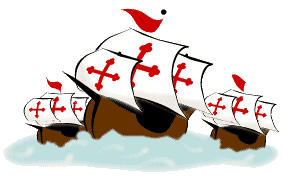
La
Vigilia - Christmas Eve and the Fish Feast
![]()

La Vigilia di Natale
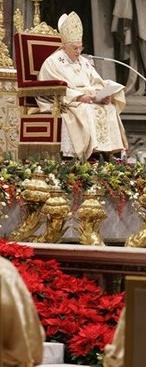
La Vigilia in West
Virginia

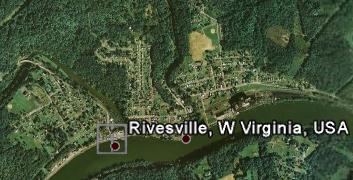
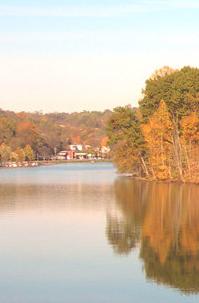
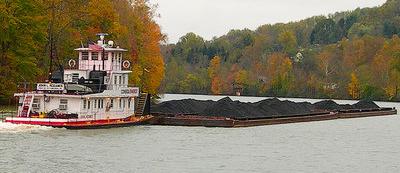
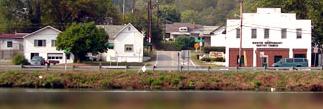
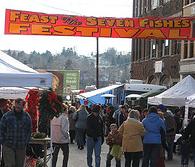
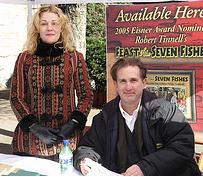
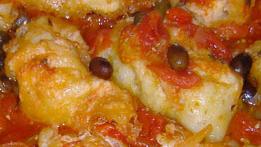
Robert
Tinnell's Feast of the Seven Fishes
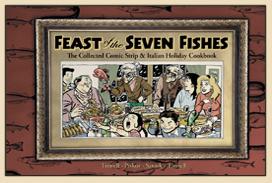 Robert
Tinnell's Feast of the Seven Fishes has taken on a life of
its own. It began as his family's story of Christmas Eve,
preparing seven fish dishes. It became a 'graphic novel', or
strip, telling such an engaging story, appreciated by so many, that it
may become a film.
Robert
Tinnell's Feast of the Seven Fishes has taken on a life of
its own. It began as his family's story of Christmas Eve,
preparing seven fish dishes. It became a 'graphic novel', or
strip, telling such an engaging story, appreciated by so many, that it
may become a film.